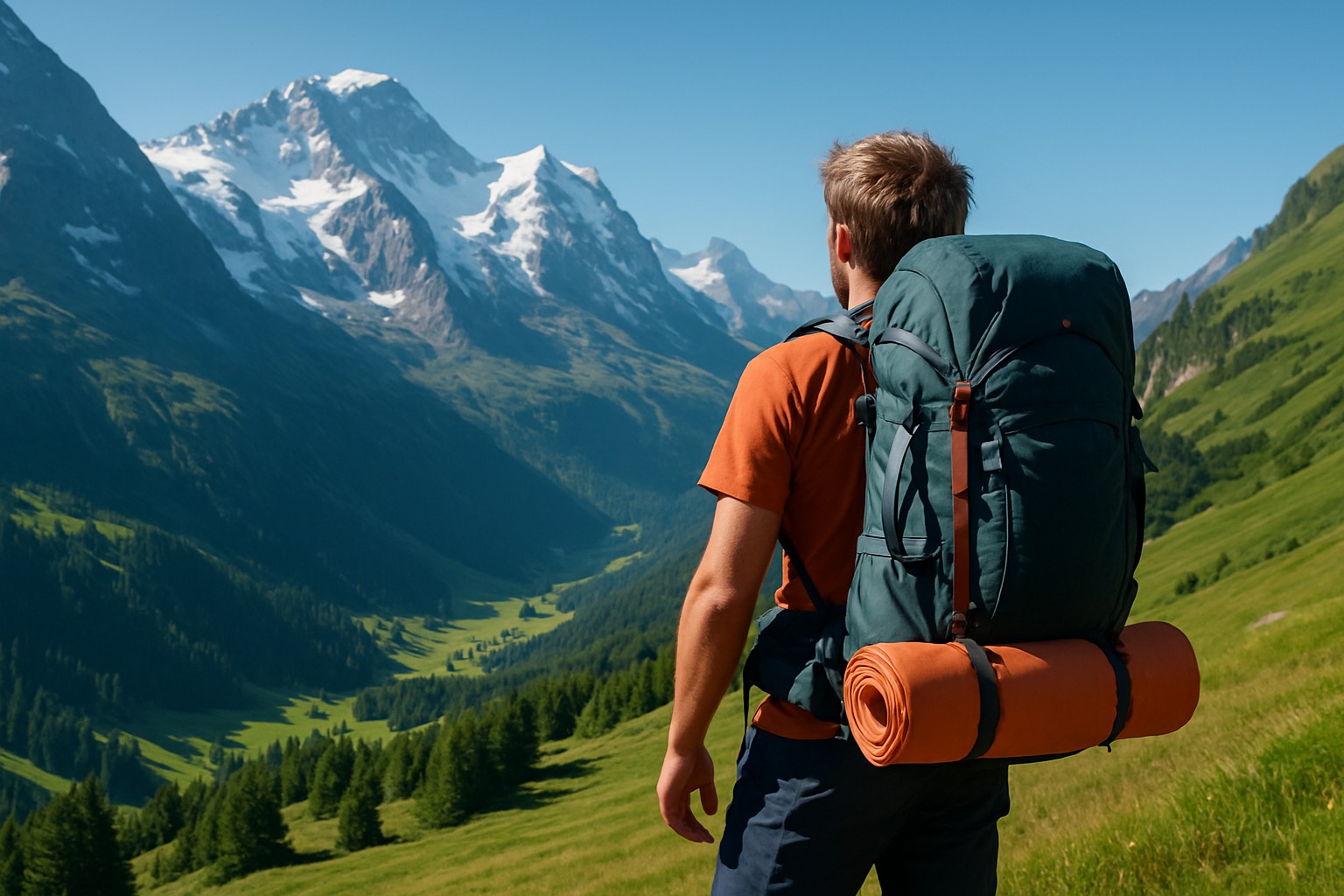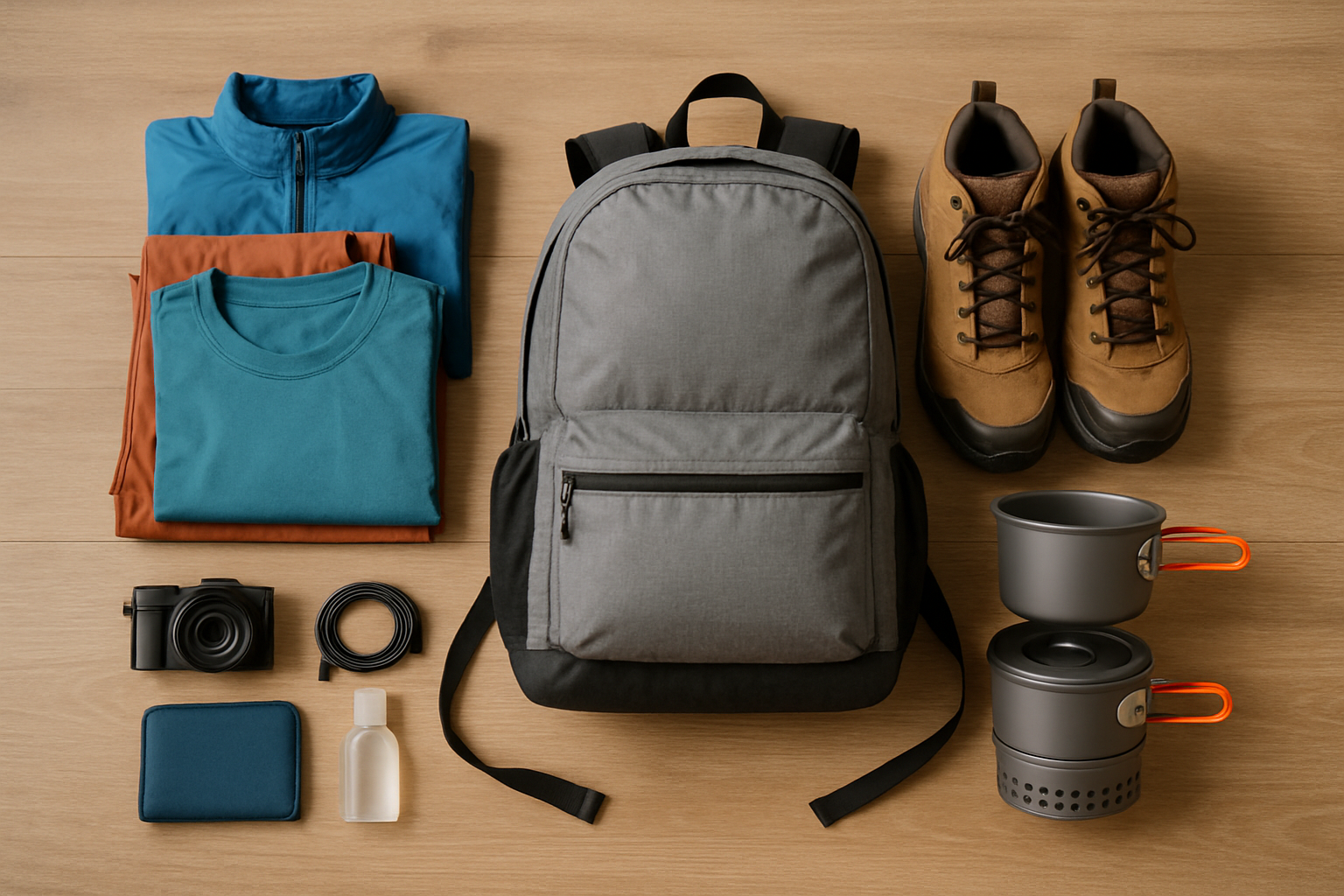
What To Pack For Backpacking In Switzerland On A Budget

Backpacking in Switzerland offers jaw-dropping scenery and unforgettable adventures but it can sometimes put a serious dent in your wallet. This guide is here to help savvy budget travelers pack smart and strike the right balance between essentials and clever ways to pinch pennies.
Getting to Know Backpacking in Switzerland A Delightful Adventure Awaits
Switzerland’s landscape unfolds like a storybook featuring serene lakes, quaint towns and the dramatic rise of towering Alpine peaks. This variety offers backpackers many trail options and unforgettable experiences. The climate here also changes quite a bit depending on your location and elevation. Because of this your gear and wardrobe need to be carefully chosen. Some favorites include the Alpine Passes Trail, Via Alpina and charming city strolls through Zurich or Lucerne. Keeping these weather quirks in mind helps you pack smart since you’ll experience everything from crisp mountain air that wakes you up to the softer milder atmosphere of the valley.
Weather and Climate Factors
When it comes to understanding the weather and climate, things can get a bit tricky—like trying to predict your morning coffee craving. These factors are the puppet masters behind the scenes, pulling strings that shape everything from that unexpected rainstorm to those scorchingly hot summer days we all love to complain about. Let us dive in and unravel these forces, shall we?
Switzerland's weather is quite the character, changing frequently due to the ups and downs of its altitude. Come summer, temperatures in the valleys usually hang around 20-25°C (68-77°F). Once you climb above 2000 meters, it’s a whole different ballgame—much cooler and sometimes dipping below 10°C (50°F). Rain shows up regularly throughout the year so waterproof gear isn’t just handy, it’s a lifesaver. Winters bring blankets of heavy snow to most mountain spots, meaning you’ll want warm specialized clothing to keep cozy. Spring and autumn tend to dance between warm sunshine and chilly rain, keeping you on your toes.
Types of Terrain and Activities That Keep You on Your Toes
Backpacking in Switzerland offers a mix of experiences from leisurely city strolls that let you soak in the charming atmosphere to challenging mountain hikes that put your grit to the test. Sturdy footwear isn’t just a suggestion; it’s your best friend. If urban exploring is more your style, comfortable shoes that can handle plenty of pavement pounding are the way to go. Seasonal sports like skiing or snowshoeing require special gear.
Key Clothing and Gear Every Budget Backpacker Should Have (Without Breaking the Bank)
Bringing versatile layered clothing is an absolute must when dealing with Switzerland's famously changeable weather without emptying your wallet. Begin with lightweight moisture-wicking base layers that feel like a second skin then add cozy mid-layers and reliable waterproof outerwear to keep unexpected drizzles at bay. Picking gear that pulls double duty keeps your suitcase light and saves your budget while ensuring you stay comfy and well-protected.
- Breathable base layers made from merino wool or synthetic materials that manage moisture to keep you comfy without feeling clammy
- Insulating mid-layers like cozy fleece or lightweight down jackets that hold in the warmth
- Waterproof and windproof outer shell jackets and pants built tough to stand up to stubborn mountain rains and gusty winds
- Durable and comfortable hiking boots that handle rocky paths and muddy trails without throwing a fit
- Quick-drying shirts and trousers that pull double duty and look sharp enough for casual wear once your trek is done
- A snug hat and gloves to keep the bite of alpine chill at bay because cold fingers are nobody’s friend
- Sunglasses with UV protection to shield your eyes from the relentless bright mountain sun so you can take in the view without squinting like a mole
You can usually snag affordable gear at outlets or online spots like Decathlon before your trip—a little digging pays off. In Switzerland, shops in bigger cities often have sales with decent discounts so keep an eye out. When packing, using compression sacks and packing cubes is a game changer—they save space and keep your gear neatly organized which usually means less bulk and a lighter load on your back.
Affordable Gear and Accessories for Backpacking That Will not Break the Bank
Picking a backpack that fits just right and carries between 40 and 50 liters hits a sweet spot. It is big enough to hold what you need but not so bulky it becomes a pain to lug around. Compact cooking gear and reusable water bottles plus lightweight sleeping setups usually make for a comfier trip without seriously denting your budget.
- Pick a backpack with adjustable straps and reliable lumbar support that fits the length of your trip so your back won’t be sore by day two
- Bring a versatile tool that can handle repairs, cooking and emergencies in one handy gadget
- Pack a power bank with strong battery life that stays compact enough to slip into your pocket without weighing you down
- Choose a quick-drying lightweight towel that saves space because nobody wants to haul a soggy oversized rag
- Include a basic first aid kit and tailor it with blister pads and pain relief options so your feet and nerves will thank you later
Opting for multi-use gear—like a cooking pot that doubles as a storage container or clothing that’s just as comfortable on a hike as it is around town—really helps trim down both the weight and the space your gear hogs.

Key Tech and Travel Items That Can Seriously Boost Your Budget Trip (Without Breaking the Bank)
Making it easier to get around and stay connected while juggling your itinerary without burning a hole in your wallet. I’ve found that relying on offline maps and translation apps is a clever way to dodge pesky roaming charges. Toss in a universal adapter with local or eSIM cards and you’re usually good to go without breaking the bank.
- Download offline maps for Swiss hiking trails and cities to save on data because who wants to get lost and run up their phone bill at the same time
- Use translation apps that work without internet to help with communication since they’re a real lifesaver when your language skills hit a wall
- Bring a universal travel adapter that fits Swiss outlets so you’re never hunting for the right plug in a panic
- Get an eSIM or a local SIM card for more affordable mobile data because this is often a smarter move than turning your phone into a roaming cash drain
- Carry a compact, high-capacity power bank to keep your phone and camera charged while you’re out and about. Trust me, dead batteries have a knack for showing up at the worst times
Tips for Organizing Your Travel Documents and Money Wisely (So You Don’t Lose Your Mind on the Go)
Keep your passport, travel insurance and bank cards tucked away in a dedicated money belt or a hidden pouch to stay ahead of thieves. It’s wise to have some cash for small purchases or surprise moments but generally lean on your cards so you’re not carrying a wad of cash.
Smart Packing Tips and Tricks for Backpacking on a Budget in Switzerland (Because Carrying Less Means More Adventure)
Smart packing can truly up your comfort game and help shave off some costs on a Swiss backpacking trip. Layer your clothes like a pro so you can easily adapt when the weather changes. Instead of the usual folding give rolling a shot—it’s a neat trick to save space. Plus packing cubes are lifesavers for keeping your stuff in order without rummaging. Making the most of your space and weight helps dodge pesky baggage fees.
Opt for lightweight and flexible items that pull double duty. This way you keep your load light without sacrificing versatility
Use compression bags or packing cubes to wrangle your clothes into neat bundles and save precious space and sanity
Pack only essentials and ditch those “just in case” items that weigh you down more than help
Double-check baggage rules for airlines and trains to avoid surprise fees for overweight bags
After packing, take one more pass through your list to weed out duplicates or things you’re unlikely to use. Less really is more here
One common slip-up is packing too many 'just in case' items that end up gathering dust in your bag and weighing you down while hiking up your transport costs. Conversely, leaving behind must-have gear like trusty rain protection or durable footwear can lead to pricey replacements or a downright miserable time on the trail.
Bonus Tips for Saving Money When Backpacking in Switzerland (Because Every Penny Counts!)
Packing wisely and sticking to smart budget travel habits can really stretch your money further when backpacking in Switzerland. You might want to consider grabbing a Swiss Travel Pass — it’s your golden ticket to unlimited rides on public transit and makes getting around a breeze. Choosing cozy budget-friendly hostels or guesthouses can save you a pretty penny. Whipping up simple meals with groceries instead of dining out helps keep your wallet happy.
- Make the most of the Swiss Travel Pass which lets you hop on trains, buses or boats as much as you like for one flat fee—no need to keep digging for tickets
- Opt for wallet-friendly places to stay like hostels, campsites or shared Airbnb rooms where you might just meet some interesting fellow travelers
- Grab your groceries from supermarkets like Migros or Coop and whip up your own meals—it’s a smart way to save a few francs and maybe channel your inner chef
- Explore free hiking trails, lakes and nature reserves to soak up Switzerland’s stunning scenery without breaking the bank
- Keep an eye out for seasonal deals on transportation and accommodations during the less busy periods—sometimes patience really pays off
Passionate by sustainable living, this environmental journalist bridges the gap between complex ecological research and practical everyday solutions for modern households.
Read Pages






